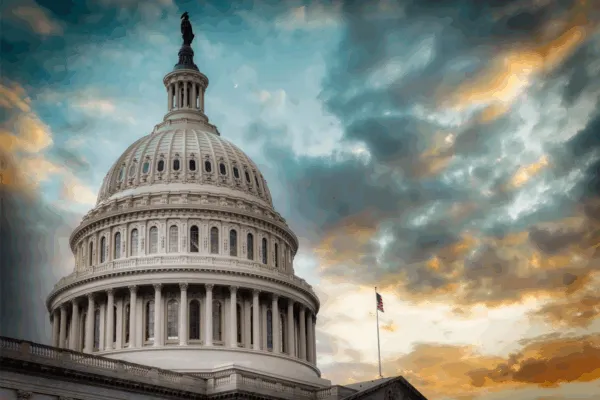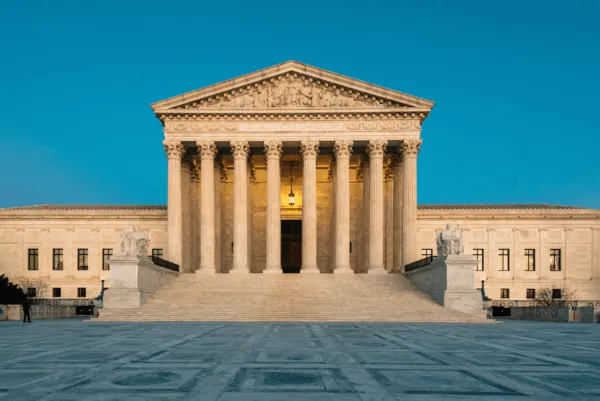
Federal Government Shutdown Suspends Most FCC Operations Beginning October 1, 2025; USAC USF Operations Will Continue

Federal Government Shutdown Suspends Most FCC Operations Beginning October 1, 2025; USAC USF Operations Will Continue
The federal government entered a shutdown at 12:00:01 a.m. EDT on October 1, 2025, following Congress’s inability to reach a funding agreement. The Federal Communications Commission (FCC or Commission) has suspended most operations as outlined in its September 30, 2025, Public Notice. While certain critical systems remain operational and filing deadlines extended, providers should understand how this shutdown affects their regulatory obligations and prepare for potential delays if the funding lapse continues.
Universal Service Fund Operations Continue
The FCC’s Public Notice confirms that Universal Service Fund (USF) programs will continue to operate during the shutdown, and providers must continue to meet all filing deadlines with the Universal Service Administrative Company (USAC). USAC is not a federal agency but rather a private, not-for-profit corporation that administers the USF under FCC direction. As such, USAC operations, including processing of contributions, disbursement of support payments, and review of forms and filings, are expected to continue during the shutdown,
Providers must continue to submit all required USAC filings by their established deadlines, including FCC Form 499-Q quarterly filings, monthly contribution payments, and program-specific documentation for High Cost, Lifeline, E-Rate, and Rural Health Care programs. USF contribution payments remain due on the 15th of each month (or the preceding business day if the 15th falls on a weekend or holiday), and these deadlines are not extended by the FCC shutdown. Similarly, providers receiving USF support should continue to submit claims, invoices, and required certifications according to normal program timelines.
However, providers should be aware of potential complications if the shutdown extends beyond a brief period. While USAC itself can continue operations, broader federal government operations that interface with USF programs may be disrupted. For example, while USAC will continue to process claims, if Treasury Department operations are suspended, this could affect the processing of federal payments and reimbursements. During the 2018-2019 shutdown, which lasted 35 days, similar concerns arose about payment processing capabilities, though USF disbursements ultimately continued.
Critical FCC Systems Status
Several FCC systems remain operational during the shutdown. The Network Outage Reporting System (NORS) and Disaster Information Reporting System (DIRS) remain fully operational, and providers must continue to meet all public safety reporting obligations. The Broadband Data Collection system, Robocall Mitigation Database, and several other systems remain accessible but without staff support.
FCC Filing Deadlines Extended
All FCC submissions due during the shutdown period through the day normal operations resume will be due on the next business day after normal operations resume. For example, if Congress appropriates funding on a Monday and the FCC returns to normal operations on Tuesday, any submissions due during the shutdown or on Tuesday would instead be due on Wednesday. This extension does not apply to NORS and DIRS filings, spectrum auction activities, BDC challenge responses, filings with USAC, or enforcement matters with specific Enforcement Bureau deadlines. The FCC’s informal 180-day transaction review shot clocks are suspended and will restart the business day following the return to normal operations.
Federal Programs Across Agencies
The impact of programs across all Federal Agencies is still being assessed. However, The U.S. Department of Agriculture is expected to suspend most Rural Development and ReConnect program operations, including processing of grant and loan applications and reimbursement requests, and the USDA website indicates it will not be updated during the funding lapse, potentially causing technical issues for online submissions. The Bureau of Land Management will continue certain permitting activities in a limited manner using available fee revenues, but telecommunications providers should anticipate delays in processing permits for rights-of-way or infrastructure deployment on federal lands, particularly for applications requiring environmental review.
The National Telecommunications and Information Administration (NTIA) has not released specific contingency plans for BEAD, Middle Mile, or Tribal Broadband Connectivity programs. Providers should continue submitting all compliance reports, reimbursement requests, and required documentation according to normal deadlines unless otherwise instructed by their granting agency, but should plan for significant delays in responses, approvals, and payment processing.
Next Steps
Providers should take several immediate steps.
-
First, use your JSI TrackNow account to identify which of your upcoming filing deadlines are with the FCC (which will be extended) versus USAC (which will not be extended). Ensure all USF contribution payments and program filings continue on schedule.
-
Second, maintain careful documentation of your USF claims and monitor expected payment schedules, contacting USAC directly if you experience unusual delays.
-
Finally, if you have critical business needs dependent on FCC approvals, develop contingency plans to address potential delays.
The longer a shutdown continues, the greater the backlog of pending matters when the FCC resumes operations, potentially extending processing times even after systems return online. JSI will continue monitoring developments and provide updates as information becomes available.
For questions about how the shutdown affects your specific regulatory obligations, USF program compliance, or to discuss strategies for managing operational impacts, please contact Brett Hallagan. For more information on how your current or pending grants may be impacted, please contact Kristen Greger.









